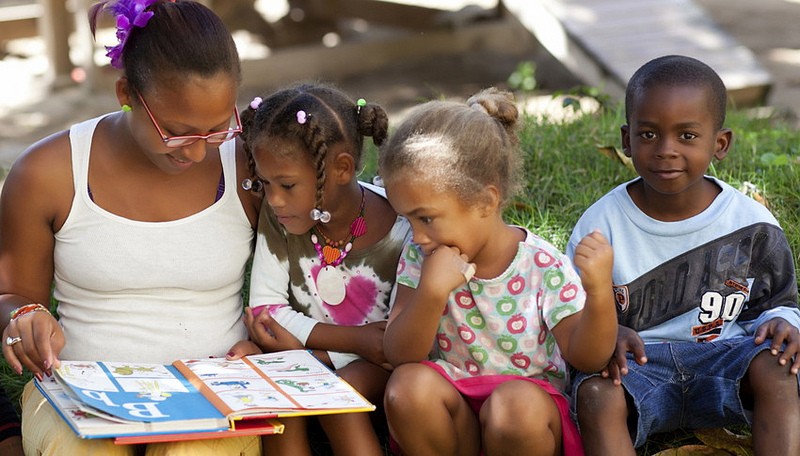Now That The Kids Are back To school, You Should Know These.

As a parent, you are your child’s first and most important teacher. When parents and families are involved in their children’s schools, the children do better and have better feelings about going to school. In fact, many studies show that what the family does is more important to a child’s school success than how much money the family makes or how much education the parents have. There are many ways that parents can support their children’s learning at home and throughout the school year. Here are some ideas to get you started!
Develop a partnership with your child’s teachers and school staff
- Meet your child’s teacher. Now that the school year has started, try to find a way to meet your child’s teacher. Let the teacher know you want to help your child learn. Make it clear that you want the teacher to contact you if any problems develop with your child. If you feel uncomfortable speaking English, don’t let a language barrier stop you. What you have to say is more important than the language you say it in! Ask the school to find someone who can interpret for you or you can bring a bilingual friend or relative with you.

- Get to know who’s who at your child’s school. There are many people at your child’s school who are there to help your child learn, grow socially and emotionally, and navigate the school environment. Who’s Who at Your Child’s School describes the responsibilities of teachers, administrators, and district staff. Each school is different but this article will offer a general introduction to personnel of your child’s school.
- Attend parent-teacher conferences and keep in touch with your child’s teacher. Schools usually have one or two parent-teacher conferences each year. You can bring a friend to interpret for you or ask the school to provide an interpreter. You can also ask to meet with your child’s teacher at any time during the year. If you have a concern and can’t meet face-to-face, send the teacher a short note or set up a time to talk on the phone. For more ideas about how to prepare for parent-teacher conferences.
Support your child academically

- Find out how your child is doing. Ask the teacher how well your child is doing in class compared to other students. If your child is not keeping up, especially when it comes to reading, ask what you or the school can do to help. It’s important to act early before your child gets too far behind. Also be sure to review your child’s report card each time it comes out.
- Apply for special services if you think your child may need it. If your child is having problems with learning, ask the school to evaluate your child in his or her strongest language. The teacher might be able to provide accommodations for your child in the class. If the school finds out your child has a learning disability, he can receive extra help at no cost.
- Make sure that your child gets homework done. Let your child know that you think education is important and that homework needs to be done each day. You can help your child with homework by setting aside a special place to study, establishing a regular time for homework, and removing distractions such as the television and social phone calls during homework time. If you are reluctant to help your child with homework because you feel that you don’t know the subject well enough or because you don’t speak or read English, you can help by showing that you are interested, see if you can find someone else who can help. Contact the school, tutoring groups, after-school programs, churches, and libraries. Or see if an older student, neighbour, or friend can help.
Get informed and be an advocate for your child
- Ask questions. If something concerns you about your child’s learning or behaviour, ask the teacher or principal about it and seek their advice. Your questions may be like these, What specific problem is my child having with reading? What can I do to help my child with this problem? How can I stop that bully from picking on my son? How can I get my child to do homework? Which reading group is my child in?
- Let the school know your concerns. Is your child doing well in school? Is he or she having trouble learning, behaving, or studying? Is there a problem with another student, teacher, or administrator?
Support your child’s learning at home
- Demonstrate a positive attitude about education for your children. What we say and do in our daily lives can help them to develop positive attitudes toward school and learning and to build confidence in themselves as learners. Showing our children that we both value education and use it in our daily lives provides them with powerful models and contributes greatly to their success in school.
- Monitor your child’s television, video game, and Internet use. In recent times, children on average spend far more time watching TV, playing video games and using the Internet than they do complete homework or other school-related activities. Offer some ideas for helping your child use the media effectively.

- Encourage your child to read. Helping your child become a reader is the single most important thing that you can do to help the child to succeed in school and in life. The importance of reading simply can’t be overstated. Reading helps children in all school subjects. More important, it is the key to lifelong learning.
- Talk with your child. Children who haven’t learned to listen carefully often have trouble following directions and paying attention in class. It’s also important for you to show your child that you’re interested in what he has to say. Talking with Your Child offers some great ideas for using conversation to stimulate language development.
-
Encourage active learning. Children need active learning as well as quiet learning such as reading and doing homework. Active learning involves asking and answering questions, solving problems and exploring interests. Active learning also can take place when your child plays sports, spends time with friends, acts in a school play, plays a musical instrument or visits museums and bookstores. To promote active learning, listen to your child’s ideas and respond to them.
source:colorincolorado.org







